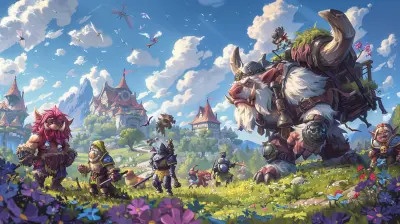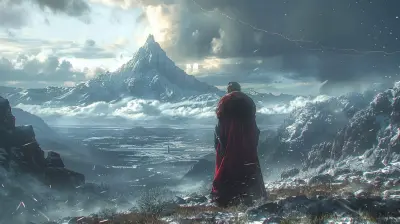Risk vs. Reward: How Games Use Uncertainty to Shape Player Decisions
17 September 2025
Ever found yourself standing at the edge of a cliff in a game, debating whether to make that impossible-looking jump for a hidden treasure chest? That, my friend, is the magic of risk vs. reward in game design.
Games love playing mind tricks with us, don’t they? They dangle sweet victories just out of reach, balanced delicately on a tightrope of uncertainty. That’s where the real fun lies. It’s not just about collecting loot or beating the boss; it’s about making choices—sometimes gutsy, sometimes smart, and sometimes downright reckless.
In this article, we’ll crack open the psychology behind those “Should I or shouldn’t I?” moments, and how developers masterfully use uncertainty to keep us hooked.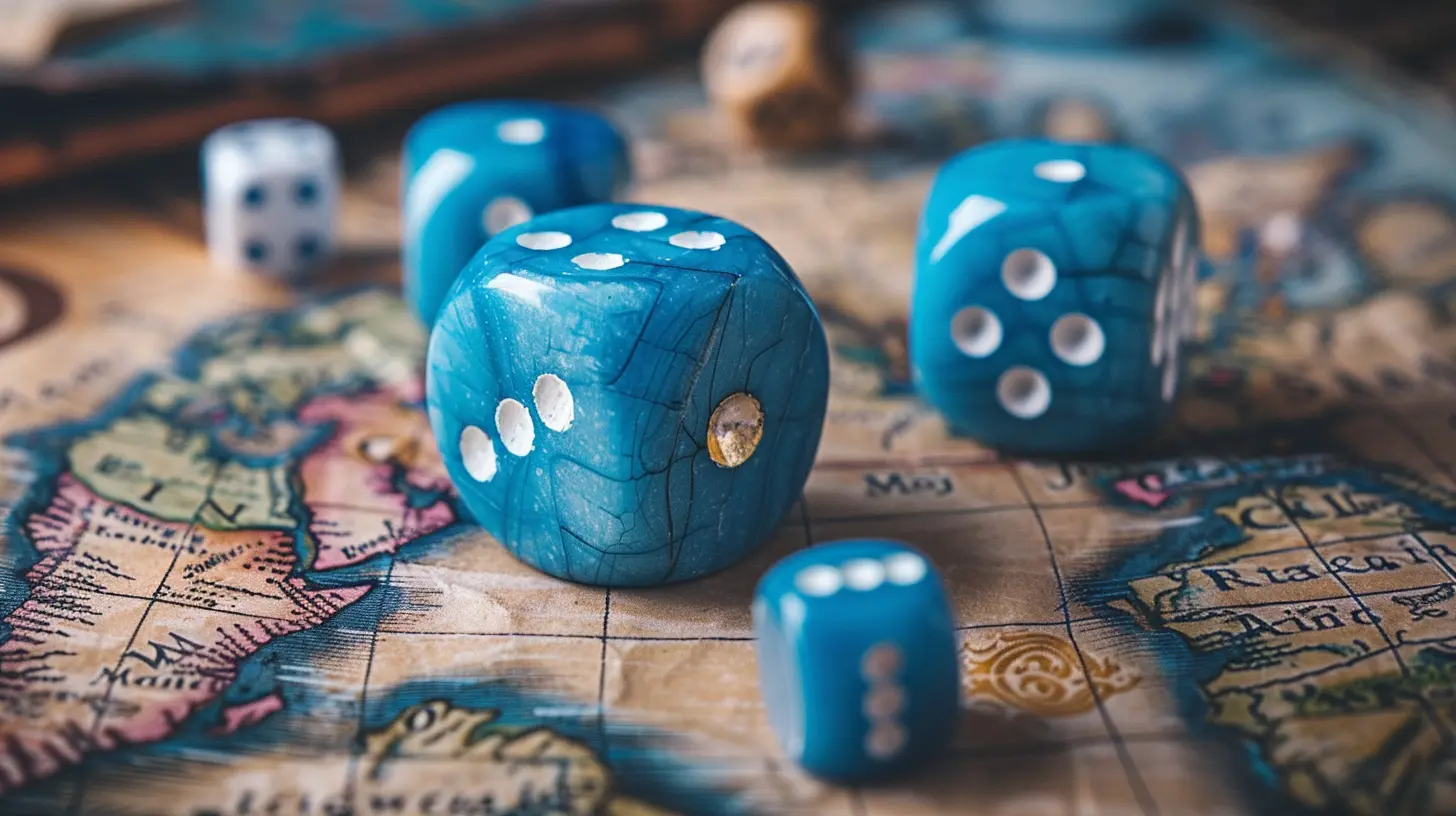
The Heart of Gaming: Decision-Making Under Pressure
Every game you play is kinda like one long string of decisions. Run or hide? Spend that gold or hoard it? Go left or right? These choices would be boring if they were all black and white. Instead, developers throw in a little chaos—uncertainty. Why? Because unpredictability is addictive.Think about it. If you knew exactly what would happen every time, where’s the thrill? Games are like roller coasters of “what ifs.”
Uncertainty Makes Every Decision Feel Real
When faced with an unknown outcome, your brain lights up like a Christmas tree. It kicks into overdrive, weighing the possibilities, assessing the risks, and imagining the sweet, sweet rewards. This is the same mechanism that keeps gamblers glued to slot machines—or us gamers to our consoles.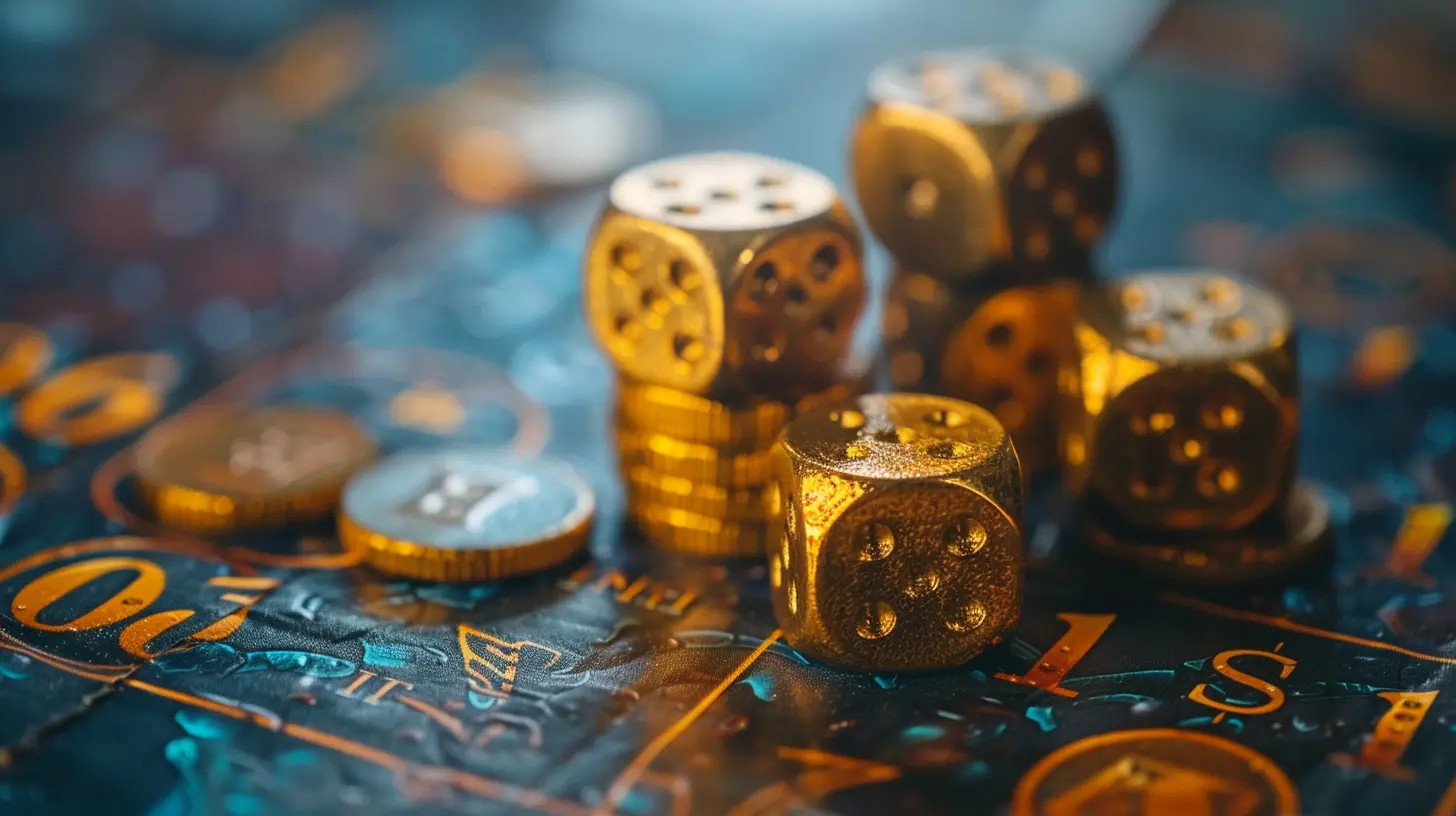
The Psychology Behind Risk and Reward
To truly get how games use uncertainty, we gotta dip our toes into a bit of psychology. Don’t worry, I won’t go all textbook on you.Dopamine: The Brain’s Hype Man
Ever noticed how great it feels to open a loot box or score a rare drop after a tough fight? That rush? It’s a dopamine spike. Your brain literally rewards you for taking a chance and getting lucky. And guess what? It encourages you to do it again.Games are designed to make you chase that dopamine high. The more unpredictable the outcome, the greater the rush of emotion when things go your way.
Risk Makes Rewards Feel Bigger
Sure, you could win a sword by following the main quest. Or, you could sneak into an enemy-filled dungeon and swipe it from a chest nobody’s supposed to find. Guess which one feels more epic?The riskier the path, the sweeter the loot. Why? Because our brains love telling a good story, and stories need conflict. Overcoming uncertainty makes the reward feel hard-earned and memorable.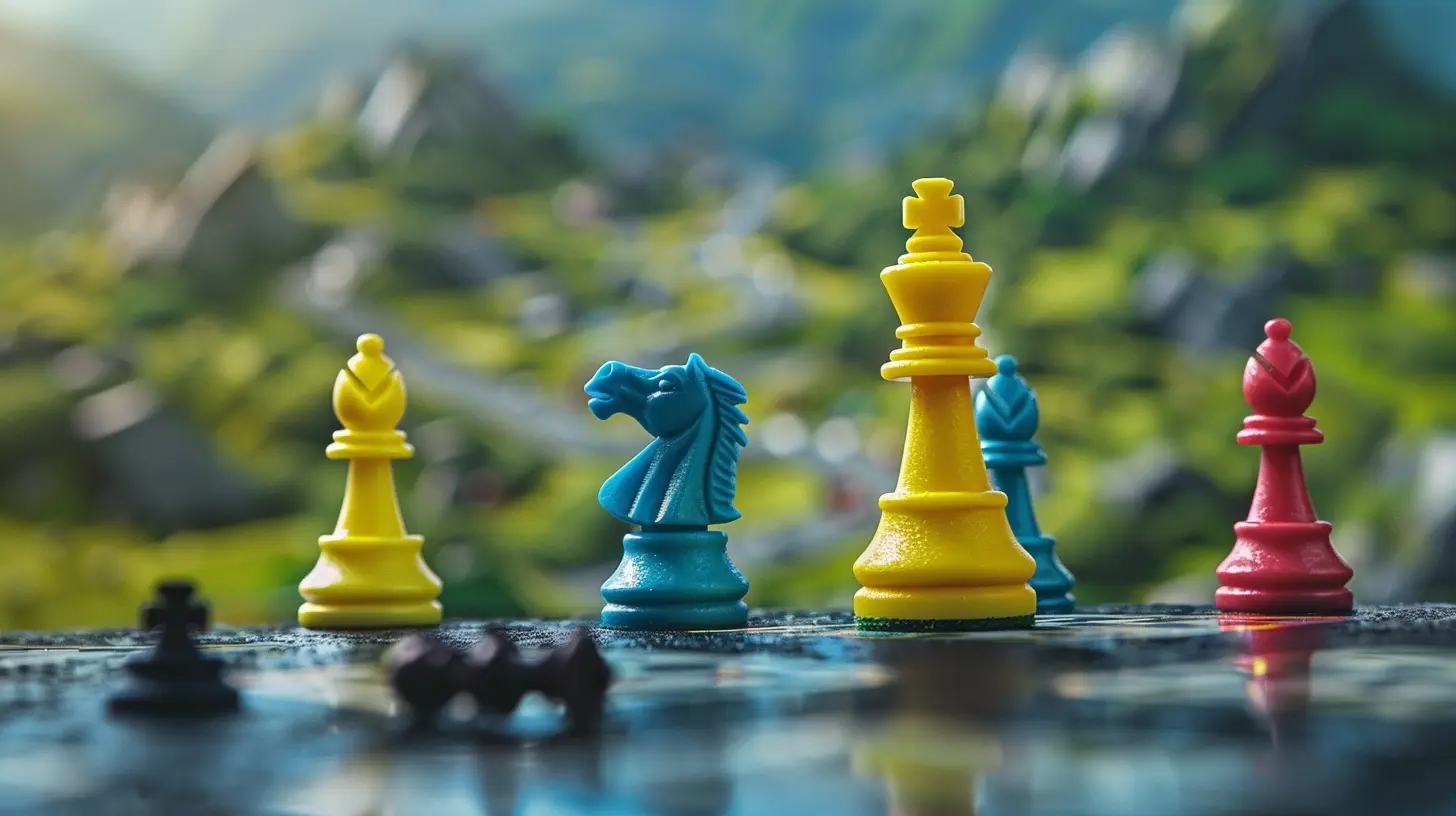
How Games Use Uncertainty (And Why It Works)
Alright, let’s break down some of the juicy ways games throw uncertainty into the mix.1. Randomized Loot Systems
You knew we were gonna talk about loot boxes, gacha pulls, and RNG (random number generation).- What it is: You don’t know what you’re gonna get until you open it.
- Why it works: It taps into that same psychological loop as gambling. The element of surprise? Irresistible.
Games like Diablo, Fortnite, or Genshin Impact use randomized rewards to keep players coming back again and again—just in case today’s the day they hit the jackpot. It’s a classic example of how uncertainty keeps you engaged.
2. Procedural Generation
Take roguelikes like Hades or The Binding of Isaac. No two runs are exactly the same.- What it is: Levels, enemies, and items are randomly generated.
- Why it works: Every playthrough feels fresh. The uncertainty of what’s around the corner makes decision-making dynamic and exciting.
Players have to adapt their strategies on the fly, which adds tension and replayability. It’s like playing a new game every time.
3. High-Risk, High-Reward Choices
Games love dangling high-reward risks in front of us.- Examples: Choosing to fight the optional mega boss, entering a “death zone” for rare loot, or using all your savings to buy a mystery item.
Dark Souls nails this. You can play it safe and turtle through the game… or you can dive into a high-stakes battle knowing one wrong move could ruin your progress. The thrill is real.
4. Gambling Mechanics and In-Game Economies
Many games include mini-games or elements where players gamble resources. Think of Poker in Red Dead Redemption 2 or Triple Triad in Final Fantasy VIII.- Why it works: There’s always a chance you might win big with minimal effort. But there’s also a risk of losing it all. It’s a mini version of life choices inside your screen.
These gambling systems are often optional—but so many of us fall in love with them. Why? We love a challenge wrapped in a mystery.
5. Permadeath and Consequences
Imagine investing 20 hours into a character, only to have them die permanently because of one bad decision. That’s brutal… but also brilliant.- Games like: XCOM, Fire Emblem (Classic Mode), and hardcore survival games lean on this hard.
- Why it works: It adds weight to every decision. Players know that one wrong move can have real, permanent consequences.
Permadeath pushes you to think twice before taking wild risks, and when you win against the odds, it feels like your own version of climbing Everest.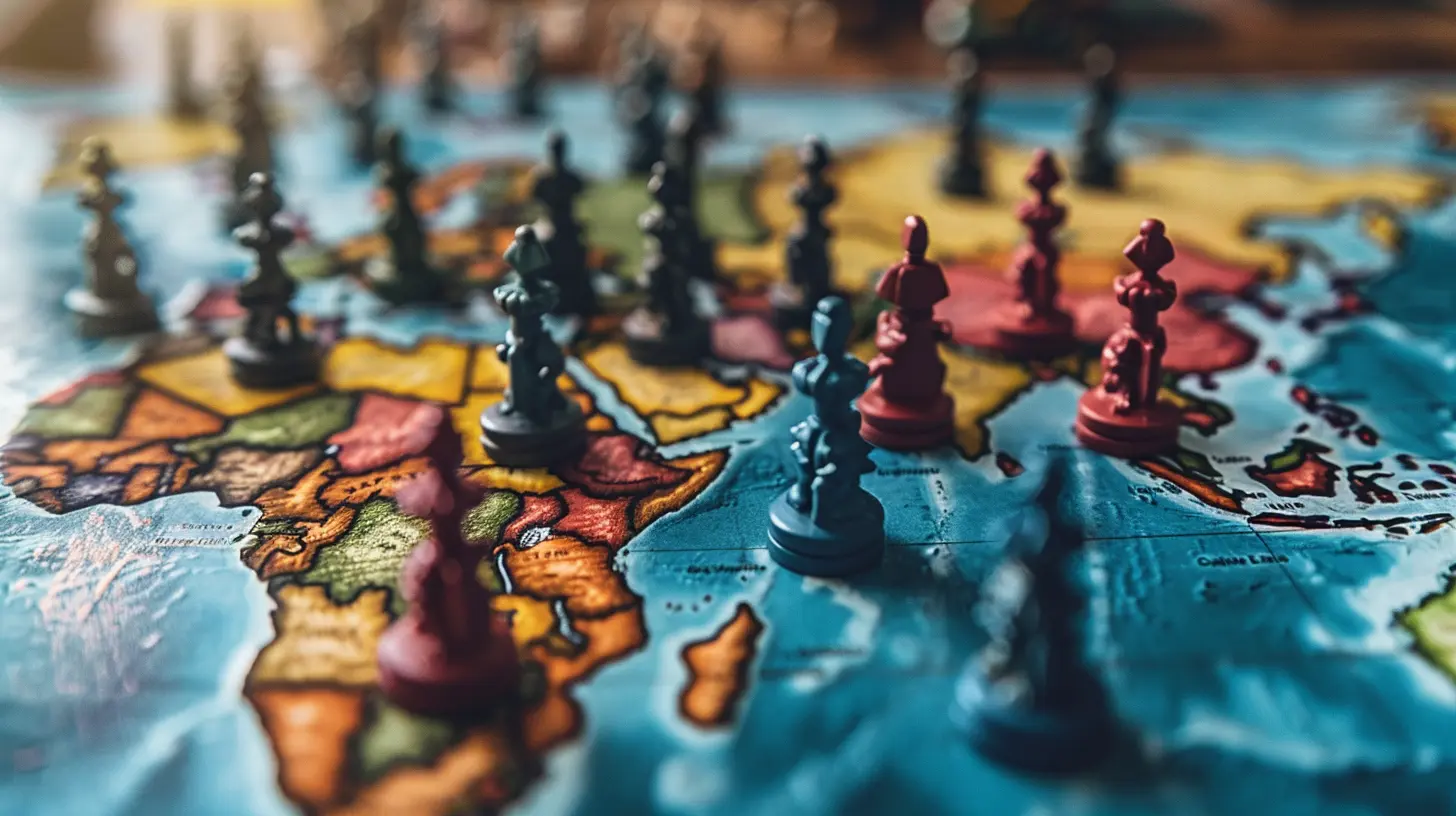
The Player’s Perspective: Why Do We Keep Taking Risks?
Now that we know how games use uncertainty, let’s talk about us—the players.We're Optimists at Heart
Most of us believe we’ll get lucky. We think, “This time, I’ll get the rare drop” or “I can totally beat that boss with 5 HP.” This overly optimistic view drives us to take risks that probably aren’t smart—but hey, sometimes they pay off.We Like Being in Control (Even When We Aren’t)
Here’s the kicker: even when games randomize outcomes, they often give us the illusion of control. Think of slot machines with "stop" buttons or quick-time events in cutscenes. You feel like your actions matter—even if the result is already decided.Games ride this line carefully. They want to surprise us without making us feel powerless.
FOMO Is Real
The fear of missing out is huge in games. Limited-time events, exclusive loot, rare encounters—these make you feel like if you don’t take the risk now, you might never get another shot.Developers know this. They craft moments designed to test your willpower… and we usually cave.
Balancing the Scales: How Devs Keep It Fair
Of course, too much uncertainty can backfire. If everything feels random or unfair, players get frustrated and bounce.Transparency Matters
Good games give you at least some insight into your chances. Whether it's showing loot drop rates or outlining possible outcomes in a dialogue choice, devs make sure players feel informed—even if just a little.Risk and Reward Should Match
If you risk everything, the possible reward should be worth it. No one wants to slog through danger and get a crummy item as a prize. That’s just bad design.Great games build trust by rewarding risk appropriately. When you make a gutsy choice and it pays off, it builds confidence to take future risks.
Iconic Examples of Risk vs. Reward in Gaming
Let’s peek at some standout games that nail this mechanic:● Spelunky
You can pick up that golden idol for a huge payout… but doing so triggers traps and awakens a boss. It’s a perfect “how greedy are you?” test.● FTL: Faster Than Light
Every jump through space presents unknown dangers or resources. Do you fight pirates for scrap or avoid them and fly safe but poor?● Resident Evil Series
Do you waste bullets on a zombie now or save them for later and risk taking damage? Inventory management itself becomes a risk-vs-reward puzzle.● Poker Night at the Inventory
A literal game of chance inside a game—but throw in hilarious dialogue and pop culture cameos, and suddenly even losing feels rewarding.Final Thoughts: Why We Love the Gamble
At the end of the day, risk versus reward is one of the most powerful tools in gaming. It mirrors real-life decision-making, taps into our emotions, and makes victory taste so much sweeter.Games that master the balance between uncertainty and player agency create unforgettable experiences. And whether you're a cautious planner or a thrill-seeking gambler, there's something irresistibly human about rolling the dice—both in games and in life.
So next time you’re staring down that scary boss or hovering over a 5% loot box chance, ask yourself: “Is it worth the risk?”
Chances are, you already know the answer.
all images in this post were generated using AI tools
Category:
Game MechanicsAuthor:

Leandro Banks
Discussion
rate this article
1 comments
Rachael McGhee
This article brilliantly captures the essence of game design. The interplay of risk and reward not only enhances player engagement but also deepens strategic thinking. It's a vital element that defines memorable gaming experiences—well done on highlighting this crucial aspect!
September 17, 2025 at 2:59 PM

Leandro Banks
Thank you for your kind words! I'm glad the article resonated with you and highlighted the importance of risk and reward in game design.
